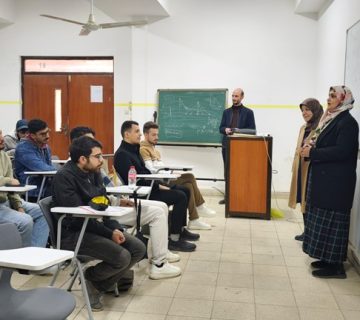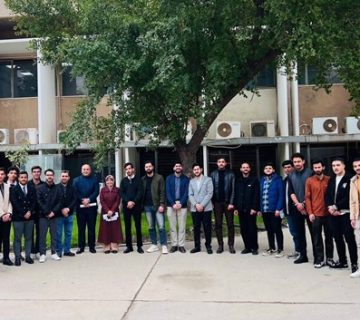The Department of Computer Engineering at the University of Baghdad, under the auspices of the Deanship of the College of Engineering, held a workshop titled:
“Artificial Intelligence Algorithms and Their Impact on Shaping Beliefs”
The workshop, delivered by lecturer Hussein Nasrallah, took place on April 16, 2025, at 11:00 AM, in the department’s discussion hall. A number of faculty members and students attended the workshop. The seminar shed light on the inherent dangers in the way social media platforms operate, emphasizing that these platforms are not merely designed to attract users’ attention, but to influence their beliefs in ways that serve the interests of platform owners or advertisers. The seminar aimed to clarify several key points, most notably that these platforms are not truly free—as they appear to be. Instead, users themselves are the product. The algorithms behind these applications train personalized AI models that simulate each individual user’s behavior, using actual behavioral data as feedback to continuously refine these models until they closely mimic real user actions.
This advanced technology enables platforms to subtly guide users toward unconscious decisions and behaviors, potentially fostering an environment that favors divisive content or misinformation due to its higher engagement rates.
The seminar concluded with several important recommendations. Chief among them was the recognition that addiction to these platforms is not accidental, but rather the result of intentional design that leverages psychological principles. It warned of the growing psychological and social harm, such as the erosion of human relationships, increased anxiety and depression—especially among teenagers—and the danger of intellectual isolation. These algorithms feed users content that reinforces their existing beliefs, which contributes to polarization and societal fragmentation.
The seminar also cautioned that platform policies that tailor content for different age groups may lead to a future where algorithms play a more significant role in shaping children’s values and behavior than parents, schools, or any traditional social institutions.








